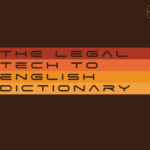
Are States Crossing The Lines?
//
 For years now, an increasing number of states have been pushing the constitutional boundaries by imposing stringent regulatory requirements on nonresidents selling goods and services within their borders. These impositions on out-of-state conduct have permeated the hemp industry, which for the past three years has been forced to comply with a patchwork of state regulations for the manufacture, sale, and distribution of finished products infused with hemp cannabinoids.
For years now, an increasing number of states have been pushing the constitutional boundaries by imposing stringent regulatory requirements on nonresidents selling goods and services within their borders. These impositions on out-of-state conduct have permeated the hemp industry, which for the past three years has been forced to comply with a patchwork of state regulations for the manufacture, sale, and distribution of finished products infused with hemp cannabinoids.
At the core of this issue is a bedrock constitutional provision more commonly known as the “Dormant Commerce Clause” (DCC). The DCC prohibits states from enacting legislation that discriminates against or excessively burdens interstate commerce and regulates conduct occurring beyond their borders without some adequate localized justification. This doctrine results from the basic constitutional principal that the U.S. was formed as one economic union that forced states to surrender the power to impose tariffs and restrain interstate trade. In essence, the DCC is “the primary safeguard against state protectionism.” Tenn. Wine & Spirits Retailers Ass’n v. Thomas, 139 S. Ct. 2449, 2461 (2019).
googletag.cmd.push( function() { // Enable lazy loading. googletag.pubads().enableLazyLoad({ renderMarginPercent: 150, mobileScaling: 2 }); // Display ad. googletag.display( "div-id-for-top-300x250" ); googletag.enableServices(); });Nevertheless, some states that authorize the manufacture, sale, and marketing of hemp-derived products have adopted regulations that impose requirements on the sale of out-of-state products that arguably regulate out-of-state conduct and excessively burden interstate commerce.
 Sponsored How Legal, Engineering Teams Can Collaborate To Reduce Open Source Risk Our friends at FOSSA provide concrete best practices for law departments in this free white paper. From Above The Law and Fossa
Sponsored How Legal, Engineering Teams Can Collaborate To Reduce Open Source Risk Our friends at FOSSA provide concrete best practices for law departments in this free white paper. From Above The Law and Fossa California is most certainly the most aggressive and daring of these states.
For example, in its recently enacted legislation (AB-45), which (finally) legalized the manufacture, distribution, sale, and marketing of finished products containing nonintoxicating hemp-derived extracts and cannabinoids, including cannabidiol (CBD), the Golden State plans on regulating nonresident manufacturers, processors, and companies selling these products within its borders by, in part, imposing a fee for any travel as well as a per diem the Department of Health will incur when conducting out-of-state inspections.
googletag.cmd.push( function() { // Enable lazy loading. googletag.pubads().enableLazyLoad({ renderMarginPercent: 150, mobileScaling: 2 }); // Display ad. googletag.display( "div-id-for-middle-300x250" ); googletag.enableServices(); }); googletag.cmd.push( function() { // Enable lazy loading. googletag.pubads().enableLazyLoad({ renderMarginPercent: 150, mobileScaling: 2 }); // Display ad. googletag.display( "div-id-for-storycontent-440x100" ); googletag.enableServices(); }); googletag.cmd.push( function() { // Enable lazy loading. googletag.pubads().enableLazyLoad({ renderMarginPercent: 150, mobileScaling: 2 }); // Display ad. googletag.display( "div-id-for-in-story-youtube-1x1" ); googletag.enableServices(); });Another example pertains to California’s infamous Proposition 65, a unique regulation that requires any business selling products in the state to provide warnings to Californian consumers about significant exposures to chemicals that may cause cancer, birth defects or other reproductive harm with stiff penalties for failure to comply that can be as high as $2,500 per violation per day.
Though California does not forbid the sale of out-of-state cannabinoid-infused products, the Golden State imposes regulatory requirements that arguably excessively burden interstate commerce, and thus, likely run afoul of the DCC.
Sponsored Sponsored Finding Opportunity in Adversity Learn what your law firm can do to be successful and find opportunity in the face of adversity, with this free on demand webcast. From AbovetheLaw And Thomson Reuters
Sponsored Finding Opportunity in Adversity Learn what your law firm can do to be successful and find opportunity in the face of adversity, with this free on demand webcast. From AbovetheLaw And Thomson Reuters  Sponsored Fiduciary Litigation Opportunity Fully remote litigation position with an extensive experience in Texas state court. Apply within. From Kinney Recruiting
Sponsored Fiduciary Litigation Opportunity Fully remote litigation position with an extensive experience in Texas state court. Apply within. From Kinney Recruiting  Sponsored How Legal, Engineering Teams Can Collaborate To Reduce Open Source Risk Our friends at FOSSA provide concrete best practices for law departments in this free white paper. From Above The Law and Fossa
Sponsored How Legal, Engineering Teams Can Collaborate To Reduce Open Source Risk Our friends at FOSSA provide concrete best practices for law departments in this free white paper. From Above The Law and Fossa  Sponsored Make The Right First Impression It’s true that the first impression you give prospective clients will be a lasting one. From AbovetheLaw And Thomson Reuters
Sponsored Make The Right First Impression It’s true that the first impression you give prospective clients will be a lasting one. From AbovetheLaw And Thomson Reuters Unless Congress expressly overrides the DCC, which is a default rule, and validates state regulations that would otherwise be unjustifiably burdensome on interstate commerce, states with audacious regulatory frameworks, such as California, run the risk of getting sued. (While beyond the scope of this article, it is worth mentioning that some states that have legalized the production of marijuana have been faced with a growing number of DCC-related lawsuits, particularly states that limit participation in social equity programs to state residents. For more information on this issue, I highly recommend reading Tommy Tobin and Andrew Kline’s article, “A Sleeping Giant: How the Dormant Commerce Clause Looms Over the Cannabis Marketplace,” which highlights the need for Congress to address DCC concerns and propose solutions as it contemplates cannabis legalization or descheduling.)
Moreover, and maybe more importantly, by imposing burdensome requirements on out-of-state cannabinoid companies, states like California are hindering economic development for an industry already plagued with regulatory uncertainties and inconsistencies. In a perfect world, the feds would establish a clear, uniform regulatory framework for the manufacture, sale and distribution of these products that states could then adopt, which, in turn, facilitate compliance, help legitimize a stigmatized industry, protect and educate consumers, and ultimately, boost the U.S. economy.
googletag.cmd.push( function() { // Enable lazy loading. googletag.pubads().enableLazyLoad({ renderMarginPercent: 150, mobileScaling: 2 }); // Display ad. googletag.display( "div-id-for-bottom-300x250" ); googletag.enableServices(); });Nathalie practices out of Harris Bricken’s Portland office and focuses on the regulatory framework of hemp-derived CBD (“hemp CBD”) products. She is an authority on FDA enforcement, Food, Drug & Cosmetic Act and other laws and regulations surrounding hemp and hemp CBD products. She also advises domestic and international clients on the sale, distribution, marketing, labeling, importation and exportation of these products. Nathalie frequently speaks on these issues and has made national media appearances, including on NPR’s Marketplace. For two consecutive years, Nathalie has been selected as a “Rising Star” by Super Lawyers Magazine, an honor bestowed on only 2.5% of eligible Oregon attorneys. Nathalie is also a regular contributor to her firm’s Canna Law Blog.
Sponsored Sponsored Make The Right First Impression It’s true that the first impression you give prospective clients will be a lasting one. From AbovetheLaw And Thomson Reuters
Sponsored Make The Right First Impression It’s true that the first impression you give prospective clients will be a lasting one. From AbovetheLaw And Thomson Reuters  Sponsored Introducing The Complete Legal Tech-To-English Dictionary! From 'AI' to 'CRM' to 'KPI' to 'WISP,' this is your guide to what’s *really* going on in law office technology From Above The Law and Wolters Kluwer Topics
Sponsored Introducing The Complete Legal Tech-To-English Dictionary! From 'AI' to 'CRM' to 'KPI' to 'WISP,' this is your guide to what’s *really* going on in law office technology From Above The Law and Wolters Kluwer Topics California, Dormant Commerce Clause, Marijuana, Nathalie Bougenies
Introducing Jobbguru: Your Gateway to Career Success
The ultimate job platform is designed to connect job seekers with their dream career opportunities. Whether you're a recent graduate, a seasoned professional, or someone seeking a career change, Jobbguru provides you with the tools and resources to navigate the job market with ease.
Take the next step in your career with Jobbguru:
Don't let the perfect job opportunity pass you by. Join Jobbguru today and unlock a world of career possibilities. Start your journey towards professional success and discover your dream job with Jobbguru.
Originally posted on: https://abovethelaw.com/2022/02/are-states-crossing-the-lines/